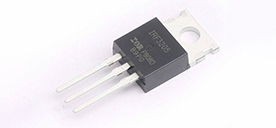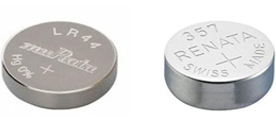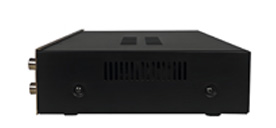Medical Electronics MCU: Overview and Characteristics Analysis of Ten Mainstream Chips
2023/9/28 15:06:46
Views:
MCUs (microcontrollers) in the field of medical electronics play a vital role. They promote the vigorous development of smart medical devices by providing performance advantages such as fast response, efficient control, data storage and processing, low power consumption and long battery life. , providing the medical industry with more convenient and accurate diagnosis and treatment methods. According to statistics from Beijing Yanjing Bizhi, among the downstream application fields of the domestic MCU market, the medical and health field occupies about 13.5% of the market share, while other fields also account for about 13.5% of the market share. It has quite a few applications.
In the medical electronics market research report, the global medical electronics market is expected to reach 71.569 billion yuan, and will maintain an average annual compound growth rate of 14.02% during the forecast period. With the development of the medical electronics field in the direction of intelligence and portability , MCU is facing higher requirements. Therefore, the application prospects of MCU in the field of medical electronics will be broader, and its importance in this field cannot be underestimated. In the future, with the continuous development of the medical electronics industry, the application of MCU We will also continue to innovate and expand.
In the field of medical electronics, there are multiple MCU models widely used. The following are some typical medical electronic MCU models:
1. Texas Instruments (TI) MSP430FG47x, which is an ultra-low power microprocessor, is designed for the future medical electronics field and aims to improve the quality and ease of use of medical equipment. It has low power consumption\high Features such as functionality and targeted peripheral integration can significantly reduce costs, improve product ease of use, and improve the quality of medical services.
2. Intel's 8051 series, which is a classic 8-bit MCU, is widely used in a variety of medical equipment, such as hemodialysis machines, electronic gastroscopy and artificial intelligence due to its high reliability, low power consumption and rich peripheral interfaces. Ventilator, etc.
3. STMicroelectronics' STM32 is a 32-bit MCU with excellent performance. It has the characteristics of low power consumption, high performance and rich peripheral interfaces. It is suitable for various medical devices such as smart blood pressure monitors, blood glucose meters and electrocardiographs. Equipment.
4. Microchip's PIC series, which is a mid-to-low-end MCU, is widely used in a variety of medical equipment such as blood analyzers, ultrasonic diagnostic machines and ventilators due to its high reliability, low power consumption and easy programming. .
5. NXP's i.MXRT series, which is a high-end 32-bit MCU with high performance, low power consumption and rich peripheral interfaces, is suitable for medical image processing, pacemakers and neurostimulators, etc. kind of medical equipment.
6. GD's MCUs are widely used in the field of medical electronics. For example, the GD32F450 series MCUs are used in medical equipment such as infrared thermal imaging cameras and forehead thermometers. These devices rely on the cooperation of MCUs with other electronic components, such as thermopiles. Sensors\RGB screens\camera modules, etc., realize a system solution from infrared temperature measurement to image display.
In addition, GD's MCU is also widely used in medical equipment such as oximeters and vaccine incubators. These devices collect and process temperature data and image data sent by sensors through the MCU to achieve specific functions.
GD's MCUs are also widely used in the medical and health field. For example, the GD32E230 series of value-for-money MCUs are widely used in medical equipment such as oximeters and forehead thermometers, providing strong support for the fight against the epidemic and having a high market share.
7. Huada Electronics' MCU products can be used in a variety of medical equipment such as oximeter, portable ECG monitor, smart health watch, etc. These devices make full use of the high performance, low power consumption and reliability of Huada MCU, Realizing the intelligence, portability and low power consumption of the device.
For example, based on the HC32L series of ultra-low-power MCU chip products independently developed by Huada Semiconductor, it has the characteristics of high integration, high anti-interference, high reliability and ultra-low power consumption, and is especially suitable for portable medical electronics such as oximeter Equipment.
8. National Technology's N32G031\N32G430\N32L406 and other MCUs have successful application cases in medical and health equipment such as oximeter, forehead thermometer, infrared thermometer, nucleic acid detector, etc., especially N32G031 and N32G430 are very popular.
9. Chipsea Technology's CSC2E101 is a highly integrated, high-security, easy-to-develop embedded controller. It uses a 32-bit high-performance core, built-in on-chip flash storage, integrates security hardware algorithms, and supports various peripheral interfaces. , very suitable for laptop computers and other equipment.
10. Xinwang Microelectronics' KF32A146 is a 32-bit automotive grade MCU product specially customized for automotive end node controllers. It supports CANFD interface, which greatly improves the cost performance of the ECU (electronic control unit). In addition, it also supports FOC motors Motor control and EPWM modules perform excellently in motor control.
In addition, there are many other MCU models that are widely used in the field of medical electronics, such as Atmel's AVR series and Japan's Seiko NS series. These MCUs are mainly used in the detection, monitoring and treatment of medical electronic equipment to assist These devices have achieved the advantages of intelligence, portability and low power consumption.
To sum up, MCU plays an indispensable role in the field of medical electronics. It not only promotes the innovative development of medical equipment, but also makes great contributions to providing smarter and more convenient medical diagnosis and treatment methods. With the medical electronics industry With the continuous growth of MCU, the application of MCU will continue to be further expanded and improved, helping the medical field to better serve human health.
In the medical electronics market research report, the global medical electronics market is expected to reach 71.569 billion yuan, and will maintain an average annual compound growth rate of 14.02% during the forecast period. With the development of the medical electronics field in the direction of intelligence and portability , MCU is facing higher requirements. Therefore, the application prospects of MCU in the field of medical electronics will be broader, and its importance in this field cannot be underestimated. In the future, with the continuous development of the medical electronics industry, the application of MCU We will also continue to innovate and expand.
In the field of medical electronics, there are multiple MCU models widely used. The following are some typical medical electronic MCU models:
1. Texas Instruments (TI) MSP430FG47x, which is an ultra-low power microprocessor, is designed for the future medical electronics field and aims to improve the quality and ease of use of medical equipment. It has low power consumption\high Features such as functionality and targeted peripheral integration can significantly reduce costs, improve product ease of use, and improve the quality of medical services.
2. Intel's 8051 series, which is a classic 8-bit MCU, is widely used in a variety of medical equipment, such as hemodialysis machines, electronic gastroscopy and artificial intelligence due to its high reliability, low power consumption and rich peripheral interfaces. Ventilator, etc.
3. STMicroelectronics' STM32 is a 32-bit MCU with excellent performance. It has the characteristics of low power consumption, high performance and rich peripheral interfaces. It is suitable for various medical devices such as smart blood pressure monitors, blood glucose meters and electrocardiographs. Equipment.
4. Microchip's PIC series, which is a mid-to-low-end MCU, is widely used in a variety of medical equipment such as blood analyzers, ultrasonic diagnostic machines and ventilators due to its high reliability, low power consumption and easy programming. .
5. NXP's i.MXRT series, which is a high-end 32-bit MCU with high performance, low power consumption and rich peripheral interfaces, is suitable for medical image processing, pacemakers and neurostimulators, etc. kind of medical equipment.
6. GD's MCUs are widely used in the field of medical electronics. For example, the GD32F450 series MCUs are used in medical equipment such as infrared thermal imaging cameras and forehead thermometers. These devices rely on the cooperation of MCUs with other electronic components, such as thermopiles. Sensors\RGB screens\camera modules, etc., realize a system solution from infrared temperature measurement to image display.
In addition, GD's MCU is also widely used in medical equipment such as oximeters and vaccine incubators. These devices collect and process temperature data and image data sent by sensors through the MCU to achieve specific functions.
GD's MCUs are also widely used in the medical and health field. For example, the GD32E230 series of value-for-money MCUs are widely used in medical equipment such as oximeters and forehead thermometers, providing strong support for the fight against the epidemic and having a high market share.
7. Huada Electronics' MCU products can be used in a variety of medical equipment such as oximeter, portable ECG monitor, smart health watch, etc. These devices make full use of the high performance, low power consumption and reliability of Huada MCU, Realizing the intelligence, portability and low power consumption of the device.
For example, based on the HC32L series of ultra-low-power MCU chip products independently developed by Huada Semiconductor, it has the characteristics of high integration, high anti-interference, high reliability and ultra-low power consumption, and is especially suitable for portable medical electronics such as oximeter Equipment.
8. National Technology's N32G031\N32G430\N32L406 and other MCUs have successful application cases in medical and health equipment such as oximeter, forehead thermometer, infrared thermometer, nucleic acid detector, etc., especially N32G031 and N32G430 are very popular.
9. Chipsea Technology's CSC2E101 is a highly integrated, high-security, easy-to-develop embedded controller. It uses a 32-bit high-performance core, built-in on-chip flash storage, integrates security hardware algorithms, and supports various peripheral interfaces. , very suitable for laptop computers and other equipment.
10. Xinwang Microelectronics' KF32A146 is a 32-bit automotive grade MCU product specially customized for automotive end node controllers. It supports CANFD interface, which greatly improves the cost performance of the ECU (electronic control unit). In addition, it also supports FOC motors Motor control and EPWM modules perform excellently in motor control.
In addition, there are many other MCU models that are widely used in the field of medical electronics, such as Atmel's AVR series and Japan's Seiko NS series. These MCUs are mainly used in the detection, monitoring and treatment of medical electronic equipment to assist These devices have achieved the advantages of intelligence, portability and low power consumption.
To sum up, MCU plays an indispensable role in the field of medical electronics. It not only promotes the innovative development of medical equipment, but also makes great contributions to providing smarter and more convenient medical diagnosis and treatment methods. With the medical electronics industry With the continuous growth of MCU, the application of MCU will continue to be further expanded and improved, helping the medical field to better serve human health.
Related Information
-
-
Phone
+86 135 3401 3447 -
Whatsapp





